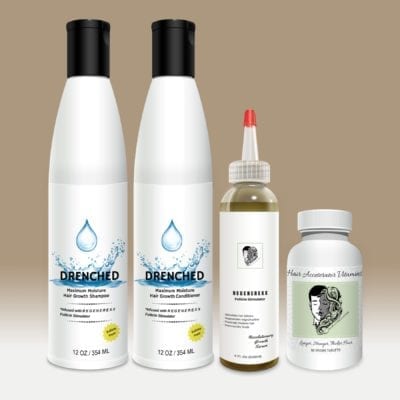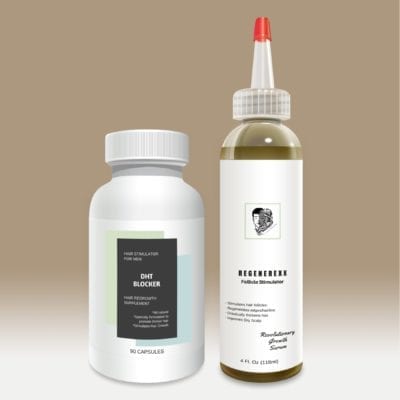When creating an effective healthy hair regimen, oils are a MUST. Particularly for natural hair, especially the Type 4 textures that tend to be drier, this aspect can’t be overlooked. Whether it’s an online hair forum or a vid from your favorite YouTube vlogger, it seems like everywhere you turn people are suggesting that you should try this oil or that, without necessarily explaining why you should use a particular oil, or how. Well…that ends NOW!
I own each and every one of the oils in that photo above (and probably some others!), but I know that all these oils are not created equal. While some would be ideal for prepooing, others work best to seal in moisture. While some of these are suitable for hot oil treatments, I know that one or two of these must be used if I have damaged edges or need to thicken my hair. You get the point! Check out my quick assessment of several oils and learn which one you’ve got to have if specific goal is faster growth and thicker hair.
And the winner is…
#1 Jamaican Black Castor Oil – and an amazing follicle stimulator that incorporates it!!
Why it’s great – Castor oil is jam packed with unsaturated fatty acids, protein, and key vitamins and minerals. Along with others, these properties make castor oil one of the very best oils to boost hair growth. For quite some time now, people have hailed the jamaican black variety of castor oil as the holy grail of oils to help people regrow edges and thicken their hair. Why? New hair growth requires an increase in blood flow to the scalp. This is why scalp massages are recommended so frequently! Whether it’s protective styling that blocks access to certain areas of the scalp, or it’s our busy schedules, frequent massaging of the whole scalp simply may not be realistic for everyone. Jamaican black castor oil can fill the gap though as this nutrient rich oil effectively increases blood flow to the scalp which helps with hair growth.
If your edges and hairline is thinning, or you’re really looking to accelerate your growth and see a drastic increase in the overall thickness of your hair then you’re going to want to give Regenerexx Follicle Stimulator a try. While Jamaican black castor oil and jojoba oil (discussed below) are key ingredients of Regenerexx Follicle Stimulator, it also has a special blend of plant based ingredients whose anti-fungal and anti-inflammatory properties remove dead skin cells from the scalp and stimulate your hair follicles in a way that scalp massaging and use of other products or oils by themselves cannot do. People love Regenerexx because it helps regenerate edges and help people get thicker, longer hair fast. Keep reading to find out how to incorporate this oil.
How you should use it – Jamaican black castor oil is in the “heavy” oil family. This means that a little bit goes a long way, and daily use is not required. If incorporating the Regenerexx Follicle Stimulator into your hair regimen, apply it to the scalp and massage where possible. Apply Regenerexx to your hairline to get amazing edges in no time. If you have breakage, thin hair, or balding in any areas, Regenerexx Follicle Stimulator can help you fix all of these issues. As with Jamaican black castor oil, you may prefer to use this at night – especially If you intend to wear your hair out, and no need to be heavy handed. A little bit goes a long way and still delivers results!
Other oils you should seriously consider using…
#2 Jojoba Oil
Why it’s great – Jojoba oil most closely resembles the sebum naturally excreted from the scalp. For this and other reasons, it’s great addressing dry scalp issues and helps to prevent split ends Jojoba oil has your standard B vitamins (B1, B2 and B6), and it’s also got vitamins A and E which all work in conjunction with one another to protect against damage. With a 98% content of monounsaturated fats, Jojoba oil is excellent for strengthening the hair against breakage.
How you should use it – Jojoba oil is one of the lightest oils out there which allows it to deliver its benefits without weighing your hair down. Use jojoba oil for scalp massages or ass an add-on in other products. Jojoba oil helps the hair revert to health after heat damage and adds great shine when incorporated into your styling routine.
#3 Coconut Oil
Why it’s great – Coconut oil is fantastic for your hair because it’s loaded with monounsaturated fatty acids and essential vitamins, like Vitamin E. Coconut oil helps reduce breakage and strengthens the hair. Coconut oil has hydrophovic properties as well which allow it to draw in moisture from the hair atmosphere into the hair. While there are certainly lighter oils, such as jojoba oil discussed previously, coconut oil is still one of the lighter oils available which makes it extremely versatile as further explained below.
How you should use it – First you’ll want to ensure that you are using pure/unrefined coconut oil. (A quick way to know whether you’ve got the proper oil is to ensure that at room temperature it is semi-solid, and not liquid!) Once you confirm that you have the right oil, you’ll be excited to learn just how versatile this oil is. Coconut oil is a great oil to use as a prepoo. Many people also find that coconut oil acts as an effective detangler, so try using the oil to melt away difficult tangles, either as a standalone detangler or mixed into a conditioner that has a decent amount of slip. Since coconut oil is a light weight oil, it also works great as a sealing oil when styling, and it adds plenty of shine to the hair.
Note: While once touted as a “holy grail” oil by many naturalistas and YouTube vloggers, there has been a recent trend within that community away from that viewpoint. Many hair gurus have found that over time, their hair started to react to coconut oil the way some people’s hair reacts to heavy protein treatments. Some symptoms include itchy scalp, drier hair, and hair that is less able to soak in moisture. Coconut oil also seems to be one of the oils that people more frequently have allergies to. While I’d still recommend keeping Coconut oil in your regimen, my advice would be to use coconut based products in moderation, especially if you have low porosity hair or your hair is prone to protein sensitivity.
#4 Olive Oil
Why it’s great – Olive oil is an all natural emollient – which means that is acts as a natural conditioner of sorts, penetrating the hair shaft to nourish, condition and soften the hair. This is why so many popular hair companies started selling Olive oil relaxers and hair color products as a less harsh alternative to their other formulas. Olive oil helps to reduce hair loss and strengthens chemically treated hair or hair damage from styling.
How you should use it – While olive oil is readily available at your local grocery store, you’ll want to be certain that the kind you purchase is “extra virgin” olive oil (EVOO). Since olive oil effectively penetrates the hair shaft, it’s a fantastic choice if you’re looking to enhance your favorite deep conditioner or want to do a hot oil treatment. Ditch the olive oil, oil sheen. Instead, pour a bit of real extra virgin olive oil in your own DIY spray bottle mix and douse your hair a couple times a week to keep it moisturized, softer and shiny throughout the week!
#5 Avocado Oil
Properties: Jam-packed with vitamins A, B, D, and E, protein, amino acids, magnesium, iron, copper, folic acid and fatty acids, avocado oil is superb for protecting and preventing damage to the hair. It also helps the hair lock in moisture and protects your strands against sun damage. Avocado oil has an even higher content (72%) of monounsaturated fats than coconut oil: these fats provide nourishment and make your hair super shiny.
Uses: Adding avocado oil to your shampoo will treat dry, itchy scalp and adding it to your conditioner will give you excellent slip to make detangling a breeze. It’s not heavy enough to be ideal for being used to seal moisture into the hair, but it does actually help moisturize the hair so always keep it handy to fight dryness.
Why it’s great – Avocado oil helps lock in moisture and is great at protecting your hair from the elements including dry winds, sun damage and the harsh cold. Avocado oil has tons of vitamins – A, B, D and E – as well as fatty acids, magnesium and iron which makes it an excellent choice for preventing hair damage. Avocado oil has a 72% monounsaturated fat content – so less than jojoba oil, but more than coconut oil – so it provides great nourishment and will certainly make your strands nice and shiny.
How you should use it – For dry hair or an itchy scalp, considering adding some avocado oil to your shampoo. For extra slip or to help melt tangles away, add a little bit of avocado to your conditioner. Many people who make DIY twisting creams and butters include avocado oil in the formula because it’s on the heavier side so it helps to seal in moisture and fight dryness. Keeping things honest – avocado oil is priiiicey!! When it comes to natural oils Now Foods is a reliable brand for quality oils, but even their 4 oz bottle of avocado oil isn’t cheap. Consider relying more regularly on some of the oils listed above, or start with a small size of avocado oil and use sparingly before splurging on a larger bottle.
Remember
When it comes to incorporating natural oils – don’t get overwhelmed! The best thing is that you don’t need to be using every single oil out there to get amazing hair. Use what you’ve just learned to understand how and why the oils mentioned in this article may be most beneficial to you, and watch your hair thrive.
By: Jessica Landry





